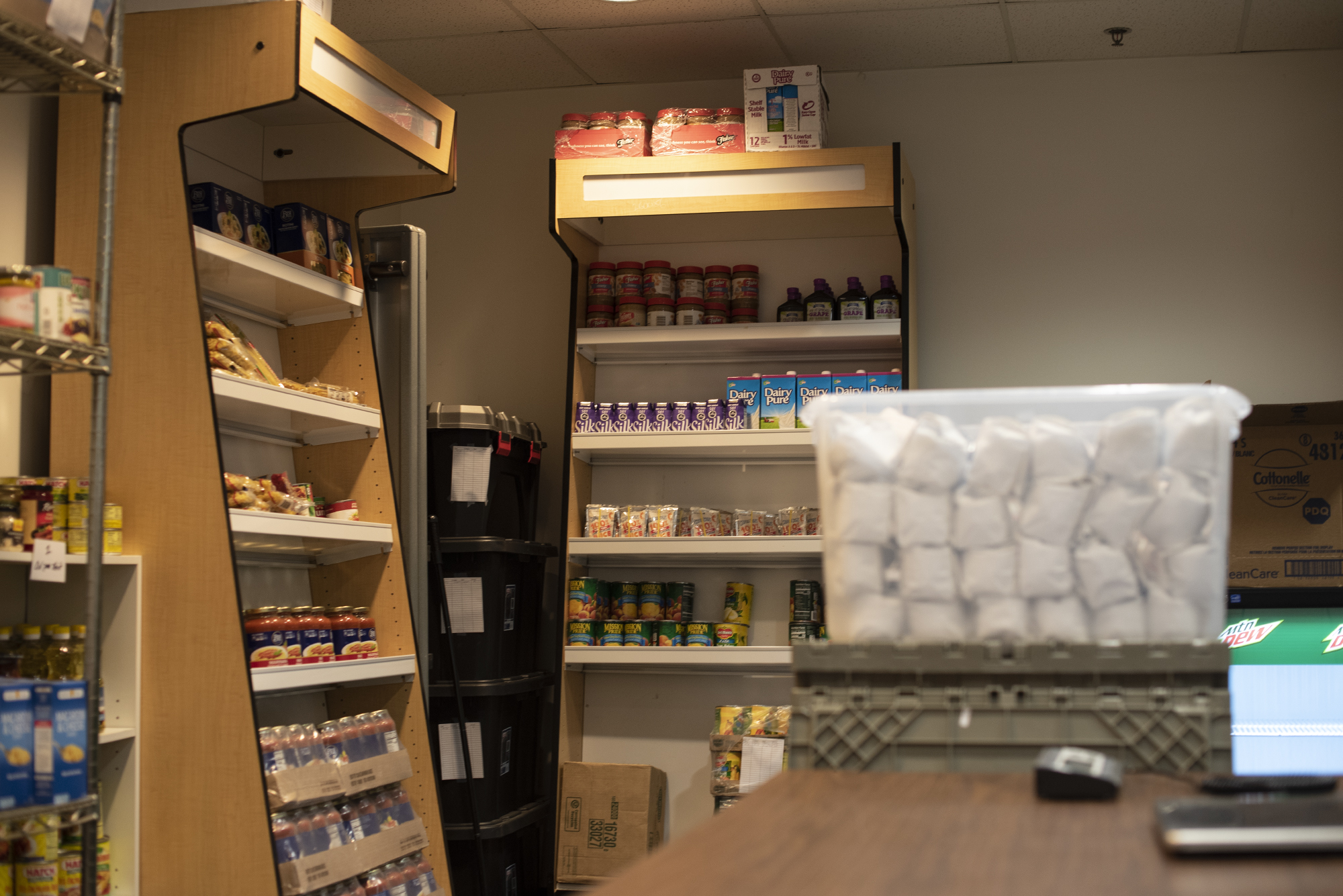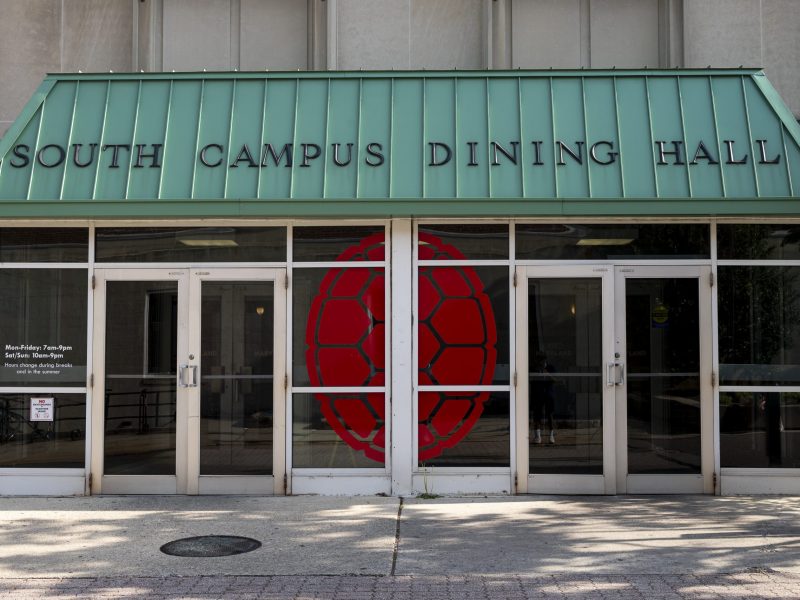Though the University of Maryland’s campus remains mostly empty, services for students experiencing housing and food insecurity are expanding their resources to aid those struggling from the economic fallout of the coronavirus pandemic.
“This is going to impact students in ways that we can’t predict,” said Brian Watkins, director of Parent and Family Affairs. “We know that food and housing insecurity will become an issue.”
Watkins is the founder and chair of Fostering Terp Success, a support program for students with experience in foster care, who are homeless, who are at risk of being homeless or who lack family support. The program, which officially began earlier this academic year, helps those students access campus dining and housing services by providing financial support and connecting them with “campus coaches” who meet with them monthly.
With businesses forced to close across the country and consumers staying home, the pandemic is expected to exacerbate economic woes around the world. Economists predict that the United States and Europe will soon fall into a recession, and policymakers are looking for ways to relieve American workers with stimulus packages.
At this university, where classes have been moved online for the remainder of the semester and students have been ordered to leave their dorms, Fostering Terp Success is issuing emergency stipends and providing 50-meal dining plans for any student who requests it from the program’s staff, Watkins said.
For students who rely on the school for more than just an education, he said, such support at a time of uncertainty is crucial.
[Read more: About 20 percent of UMD students struggle with food insecurity, study finds]
Twenty percent of students at this university report being food insecure, according to a 2019 study conducted by the Counseling Center’s research unit. The Campus Pantry, which provides emergency food services to university students, faculty and staff, served 790 clients 2,559 times in the 2018-19 academic year, according to data from Dining Services.
The pantry will stay open an additional day each week from March 20 to April 10 — offering services on Tuesdays and Fridays, instead of solely on Fridays.
With more students out of work for a prolonged period, there’s “no way to tell” what demand for food from the pantry will look like in the next few weeks, said Allison Tjaden, assistant director of new initiatives for Dining Services.
“Keeping food on the shelves is the priority,” Tjaden said.
To prepare for that uncertainty, pantry employees placed advanced orders for goods from the Capital Area Food Bank, an organization based in Washington, D.C., that outsources donations to smaller regional pantries including the university’s. The pantry may also require an increase in donations from the community, Tjaden said.
She noted that the pantry is ready and willing to remain open, and hopes that it will continue to provide security and “friendly faces” for students at a time of heightened anxiety.
With regard to housing, students who face extreme hardship at home can petition to stay on campus for the rest of the semester in limited emergency spots, according to the Department of Resident Life. But isolating oneself on an empty college campus — one built for the comings and goings of 40,000 students — presents its own challenges.
Chaida Bango Bango, one of seven Fostering Terp Success students remaining on campus, is staying in Cecil Hall. The sophomore came to the university from the foster care system and applied for emergency housing because she didn’t have a permanent home to return to amid the campus closure.
But the current emptiness in College Park makes it hard to consider it home, she said.
“It feels like you can hear an echo from a mile away,” the public policy major said. “Sometimes it just feels sad, because you know that everyone else, or most people, have a place to go, and it really hits you that during this time you really don’t have anywhere else to go.”
To pass the time, Bango Bango has been going for walks and chatting with friends through social media. With financial support from Fostering Terp Success, she also stocked up on groceries.
While struggling students can find support with Fostering Terp Success and the Campus Pantry, they can also apply to the university’s Student Crisis Fund for financial assistance, Watkins said.
[Read more: WMATA closes 17 more stations, including College Park-UMD stop, as coronavirus spreads]
The fund, established in 2001, offers aid to enrolled students facing unanticipated circumstances, such as house fires, medical emergencies and natural disasters.
Since the spread of the coronavirus, the Student Crisis Fund has received 50 or more requests a day, according to a news release from Jackie Lewis, vice president of University Relations. The fund typically receives 2-3 requests per week, Lewis wrote.
After distributing over $250,000 to nearly 700 students within a little over a week, the fund has been depleted. Over 100 students remain waiting for “critical assistance,” according to the release.
Although Bango Bango believes she has enough university support to finish up her semester on campus, she worries about the future. She’s been applying to jobs frequently, she said, but is not optimistic that she’ll hear back, given the pandemic’s economic fallout.
“The country is still in chaos,” Bango Bango said. “I have no plans, no sort of direction to go about recovering from all this.”
That kind of worry, Watkins said, is exactly what services like his are aiming to address.
“Our efforts to provide additional funding for them was in the hope to kind of alleviate additional concerns that they might have: ‘How am I going to make it through with no income, how am I going to access food, and what’s going to be available to me?’” he said. “Our goal is to try to reduce or eliminate some of those other concerns.”



